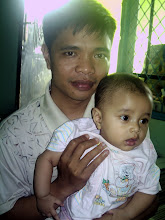INDIVIDUAL LEARNER DIFFERENCES AND SECOND LANGUAGE ACQUISITION
Presented by: JASMANSYAH (049478)
sources : UNDERSTANDING SECOND LANGUAGE ACQUISITION
Writer : R. ELLIS (Pp. 99 – 126)
Introduction
Aspect of SLA influenced by individual learner factors
Identification and Classification of learner factors
Personal factors
This methodological problem has been solved in two ways:
First, through the use of diaries studies,
Second, through the use of questionnaires and interviews with individual learners.
Group Dynamic
Attitudes to the Teacher and Course Materials
Individual Learning Techniques
Naiman (1978) and Pickett (1978) identify numerous study techniques:
1. Preparing and memorizing vocabulary lists
2. Learning words in context
3. Practicing vocabulary
Intelligence and Aptitude
a. Intelligence : A general academic or reasoning ability
b. Aptitude : Specific cognitive needed for SLA.
Cummins (1979) distinguishes two kinds of language ability:
1. Cognitive / academic language ability (CALP);
2. Basic interpersonal communication skills (BICS);
Caroll and Sapon (1985) identify three major components of aptitude:
1) Phonetic coding ability.
Example: To identify the sound which ‘th’ stands for;
2) Grammatical sensitivity.
Example: the subject and object of a sentence;
3) Inductive ability. For example: to recognize that English ‘to’ can denote direction and ‘at’ location;
4. Rote learning ability.
Attitudes and Motivation
Schumann, 1978:
a. Attitude : a social factor on a par with variables such as size or learning group;
b. Motivation : an affective factor alongside culture shock.
Gardner & Lambert, 1972:
a. Attitude : persistence shown by the learner in striving for a goal
b. Motivation : the L2 learner’s overall goal orientation
Brown, 1981 distinguishes motivation and attitude. He identifies 3 types of motivation:
1. Global motivation
2. Situational motivation
3. Task motivation
The ‘good language learners’
The good language learner will:
1. be able to respond to the group dynamics of the learning situation;
2. seek out all opportunities to use the target language;
3. make maximum use of the opportunities afforded to practice listening to and responding to speech in the L2;
4. supplement the learning that derives from direct contact with speakers of the L2 with learning derived from the use of study techniques;
5. be an adolescent or adult rather than a young children;
6. posses sufficient analytic skills to perceive, categorize, and store the linguistics feature of the L2;
7. posses a strong reason for learning the L2 and develop a strong task motivation;
8. be prepared to experiment by taking risks, even if this makes the learner appear foolish;
9. be capable of adapting to different learning condition
Rabu, 14 Mei 2008
Langganan:
Posting Komentar (Atom)

Tidak ada komentar:
Posting Komentar